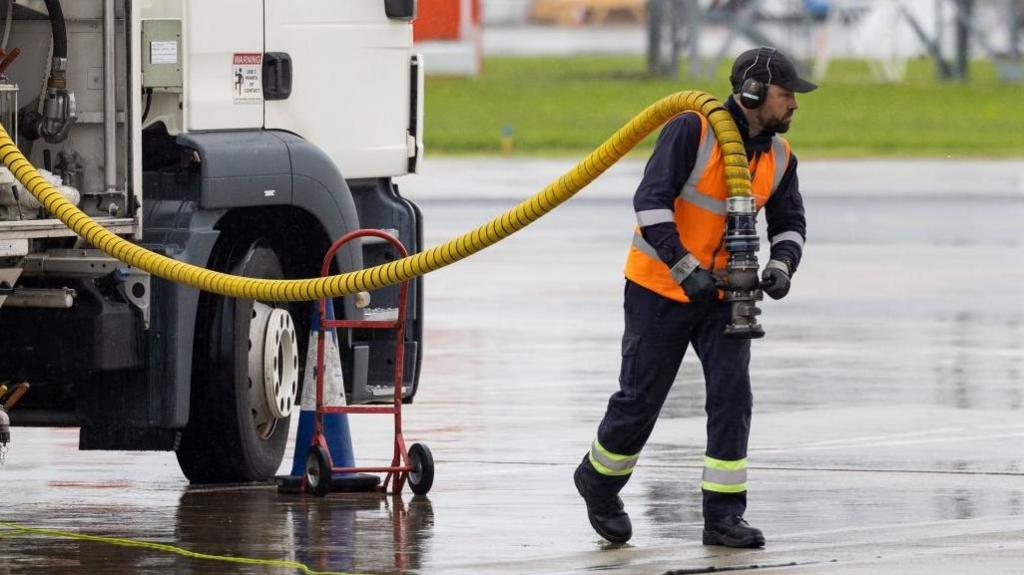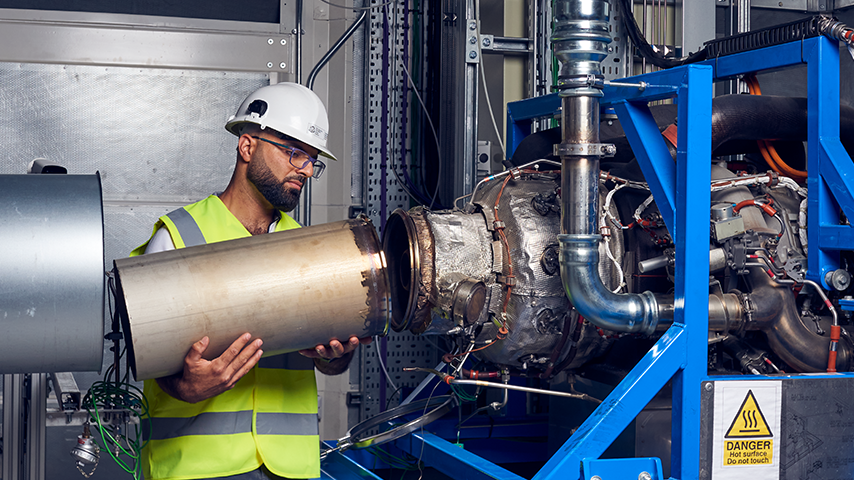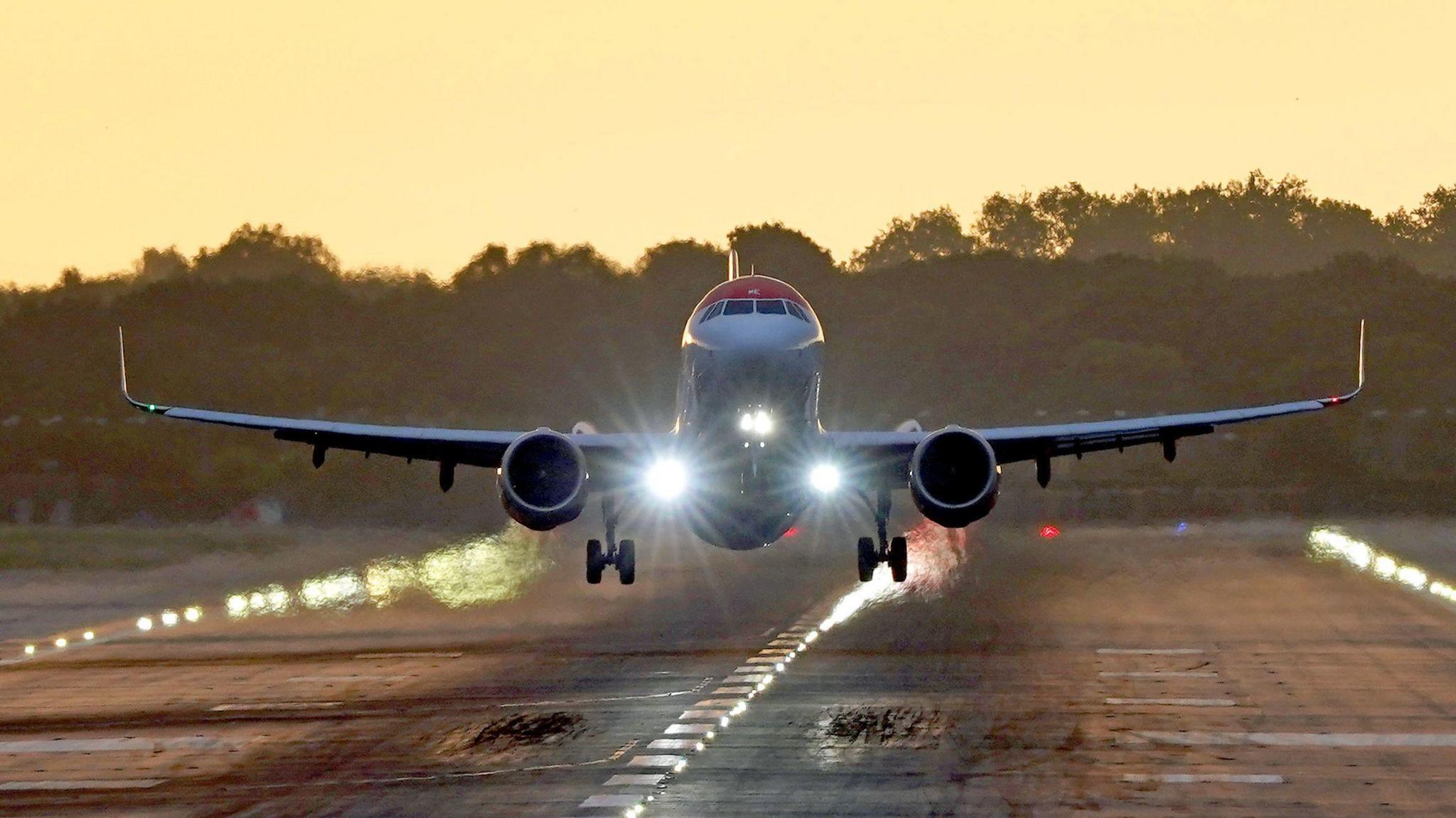Airport to test green aviation fuel development

The eight-month study will look at whether or not the fuel can be manufactured and then used at Leeds Bradford Airport
- Published
A new greener type of jet fuel could be produced at Leeds Bradford Airport (LBA) to be used by planes taking off from the site.
The Department for Transport (DfT) has provided £1.5m for a feasibility study looking at whether sustainable aviation fuel (SAF) made from elements of carbon dioxide and water could be manufactured at the Yeadon-based airport.
SAFs are man-made alternatives to fossil fuels and are typically created from plant oils or household waste.
The eight-month study will look at whether the the energy, known as Electrolysis Sustainable Aviation Fuel (eSAF), could be made and then used at LBA to power aircraft.
The study is being delivered by the University of Sheffield in partnership with the airport and with support from academics at the University of Leeds.
While SAFs still release carbon when burned by aircraft, as the fuel is recycled it will not be adding to the overall load of carbon dioxide in the atmosphere.
LBA Chief Executive Vincent Hodder said: "I know this sounds like science fiction, but it is just science.
"The only ingredients that go into eSAF are electricity, water and carbon dioxide from the atmosphere.
"All of that is available locally and then all we have to do is transport the liquid to the aircraft and you've got a completely circular carbon movement."
Leeds North West MP Katie White, who campaigned for the study, said: "This funding is a crucial step towards making sustainable jet fuel a reality at Leeds Bradford.
"It's about cutting emissions in one of the hardest sectors to decarbonise, and creating the skilled jobs and investment that come with it.
"I'm proud to see our region leading the way."
How greener jet fuel could be manufactured at LBA
If the study is deemed a success, a production facility powered by green electricity could be built at the airport to extract carbon elements from the air alongside hydrogen elements from water. These would then be recombined to create the eSAF.
Transport and Environment, a campaign group which lobbies for clean energy and fuel, has welcomed the news but warned there was a "mountain to climb" to "create enough SAF to satisfy the UK aviation industry".
Roger Tyers, the group's UK aviation policy manager, said: "We think this is the future for aviation but these kind of fuels are still in their infancy.
"The tech is proven but we don't have any being developed on a large commercial scale yet."
Get in touch
Tell us which stories we should cover in Yorkshire
Listen to highlights from West Yorkshire on BBC Sounds, catch up with the latest episode of Look North.
Related stories
- Published20 September 2024

- Published22 September
